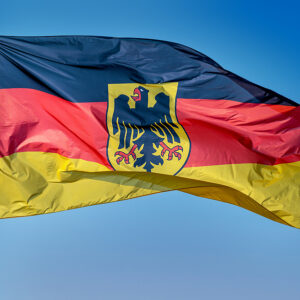The world awaits Russia’s decision on whether to attack its neighbor Ukraine. But it’s also watching the actions of Europe’s biggest economic powerhouse, Germany.
The challenge is finding a solid answer on where Germany stands, though the country’s chancellor, Olaf Scholz, has said a NATO response to a Russian invasion would be “decisive.”
The most socialist chancellor to lead Germany since the Allies allowed the nation to self-govern after World War II, Scholz has all eyes on his nation and how it views its NATO obligations.
Scholz, in an interview with The Washington Post, claimed Germany “is the biggest NATO partner in continental Europe,” and that Russia “will have very high prices (sic) if they intervene.”
To be sure, Germany — which gets its highest percentage of energy from Russia — may still need to prove its fidelity to NATO. And that could come at a significant price to its own economy. (Of course, if the U.S. returned to a high production rate one would think that could be part of any solution to wean Germany off Russian products, but that is a different story.)
Scholz, apparently trying to deflect the notion that Germany is beholden to Russia, said, “In just 25 years, in 2045, we will be absolutely independent of the import of gas, oil, and coal to Germany, because we just will rely on renewable resources.” It’s a bold, over-the-top statement, though it is likely the country will move ahead to some degree.
For his part, President Joe Biden said, “If Russia invades — that means tanks or troops crossing the border of Ukraine — then there will be no longer a Nord Stream 2. We will bring an end to it.” The pipeline is not yet active.
Then there is Germany’s curious decision to make a tepid show of support backed only by providing 5,000 helmets to Ukraine. It is a move that has called into question its true resolve. No one can figure out the thinking behind the decision.
It was “Ukraine that put in the request to send helmets, and we reacted to that,” said Scholz.
Whatever Germany’s true intent, any message of support for Ukraine is not getting through.
Ukraine’s ambassador to Germany, Andrij Melnyk, told the Germans to “wake up” to what his country is facing. “We think that the world is becoming more dangerous and Germany…cannot allow itself to stay neutral and to go on sleeping and enjoying a comfortable life,” he told CNBC.
Germany has denied weapons to Ukraine, saying, “We don’t provide any lethal weapons.”
That reluctance to provide lethal materials (normally weapons and ammunition) is theoretically based on Germany’s history in World War II. But it is clearly detrimental to the notion of an alliance today. While Ukraine is not a NATO member, Germany and other western nations have generally friendly relations with the democratically elected government.
Germany is also refusing to allow the transfer of weapons purchased by other nations that originated in their country.
The Wall Street Journal reported that Germany blocked, “(NATO) ally Estonia from giving military support to Ukraine by refusing to issue permits for German-origin weapons to be exported to Kyiv…”
Actively preventing Ukraine from getting weaponry from other NATO members is an astonishing act from a friendly nation that is ostensibly biased toward democratic rule by free nations.
The U.S. as of Feb. 8 moved as many as “1,000 NATO troops” into NATO member Romania’s territory with another “1,700 U.S. soldiers from the 82nd Airborne Division” expected to move into Poland, according to the Associated Press.
If the situation is not resolved by the latest efforts of France, Germany, Russia, Ukraine, with obvious bolstering from the U.S. and the U.K., NATO may have to act in a major way, whether through diplomacy, cyber, military, or coordinated economic action or all of the above.
European nations will look to Germany to evaluate its participation. A wrong decision could tip the situation into a disaster. It is time for Germany to decide its level of participation now.

